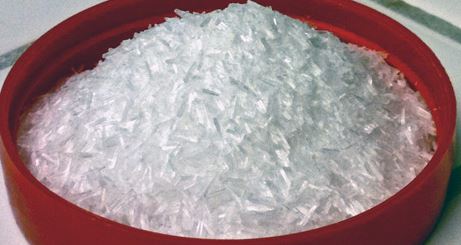Monosodium Glutamate Side Effects
Monosodium Glutamate (MSG) is the salt form of glutamic acid. Glutamic acid is a non-essential amino acid needed by body processes. Monosodium glutamate with the HS code of 29224220 is considered a safe (GRAS or generally considered as safe) food additive by the Food and Drug Administration.

Monosodium glutamate is identical chemically with the umami found in certain food sources. Several manufacturers market MSG because of its flavor enhancing characteristics. Vetsin, Ajinomoto, and Ac’cent are three of the most famous brands of MSG. Proponents reveal that monosodium glutamate side-effects result from the use of MSG.
Monosodium Glutamate Side Effects or Adverse Reactions
The Food and Drug Administration said that only a small percentage of people may suffer monosodium glutamate side-effects as a sign of hypersensitivity reaction to it. Also, the occurrence of these monosodium glutamate side-effects is a result of a substantial dose of glutamate. However, many people still believe that MSG is bad for the health because of previous anecdotal allegations. Alleged monosodium glutamate side-effects include:
MSG-sensitivity
People who are sensitive to glutamic acid may also be sensitive to MSG which contains free glutamic acid in the form of glutamate. The hypersensitivity reactions are usually felt by the person few minutes to hours after the ingestion. Allergic reactions usually include:
- Skin rash, hives
- Migraine headache
- Nausea
- Heart irregularities
- Runny Nose
- Shortness of Breath
- Asthma
- Sneezing
- Facial swelling
These monosodium glutamate side-effects are a result of stimulating the inflammatory mediators and chemicals to counteract the “allergen” in the form of glutamate. These result in the synthesis of histamine that is responsible for the hypersensitivity reactions. Management for these monosodium glutamate side-effects includes avoiding the intake of the allergen, which is the MSG. Treatment of allergic reactions include an antihistamine to reduce signs and symptoms. In patients developing heart irregularity such as palpitations, it is important to consult a physician to rule out any other cause of the palpitations.
Affectation of the excitatory nerve transmission in the peripheral nervous system
MSG is thought to increase the excitatory nerve impulse transmission in the peripheral nervous system as a result of binding with the glutamate receptors in the neurons. As a result, the person may experience numbness and tingling sensation as monosodium glutamate side-effects. These monosodium glutamate side-effects can be managed by avoiding use of excessive MSG in the food. It is said that MSG is safe provided that excessive amounts of MSG are not used. Nerve impulse transmission may also be improved through consumption of B-vitamins, which is abundant in most green leafy vegetables, legumes and meat.
Hypertension
The presence of sodium in MSG results in high blood pressure as monosodium glutamate side-effects. Sodium attracts water which increases the circulating blood volume in the body, increasing blood pressure. High blood pressure can be managed using prescribed anti-hypertensive medications. Rest and proper exercise also improves the elasticity of the blood vessels.
Dementia or Alzheimer’s Disease
Monosodium glutamate is considered a slow neurotoxin which affects the nerve impulse transmission in the brain after few years. This monosodium glutamate side-effect is not seen immediately, but gradually takes its toll on the brain. The symptoms may appear during old age where dementia may occur. Dementia and Alzheimer should be prevented by the avoidance of too much MSG and aluminum based cooking wares.
Obesity
MSG was linked to increasing incidence of obesity because of apparently enhanced taste of food. Just like sodium chloride, MSG also contains sodium which acts as a medium that retains water in the body leading to obesity and hypertension as monosodium glutamate side-effects. Obesity can be prevented and managed through proper diet, and exercise.
Stunted Growth
The role of MSG in the endocrine system has not been clear, but people who are against the use of MSG has reported evidence of growth retardation in children related to the free glutamic acid found in MSG. This monosodium glutamate side-effect may be supported by proper diet and food supplements in the form of Chlorella Growth Factor.
Behavior Disorders
MSG was also regarded as something that changes the nerve impulse transmission in the brain that causes changes in the behavior and mood as monosodium glutamate side-effects. MSG was also loosely linked to the occurrence of Attention Deficit Hyperactivity Disorder in children. Behavior changes can be properly managed through proper social interactions and presence of support systems.
Other monosodium glutamate side-effects
The other monosodium glutamate side-effects of MSG have not been closely linked to the usage of MSG alone. Due to this, the following monosodium glutamate side-effects were only subjectively reported:
- Rage reactions
- Depression
- Loss of Balance
- Light-headedness
- Disorientation
- Joint Pains
- Stiffness
- Blurred vision
- Insomnia
- Sleepiness
- Vaginal Spotting
- Bladder pain
- Nocturia
Despite these monosodium glutamate side-effects, the FDA still categorize MSG as generally regarded as safe food enhancers. MSG has been used for almost more than 100 years and commonly seen in Asian cuisine. Despite this, the Asian population still remained to have lower risks for certain autoimmune, hereditary and neurologic diseases as commonly seen among the western population. MSG is still beneficial to enhance the flavor of dishes, but on a correct amount to avoid monosodium glutamate side-effects.